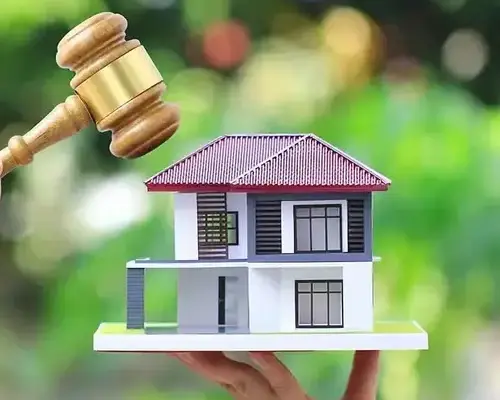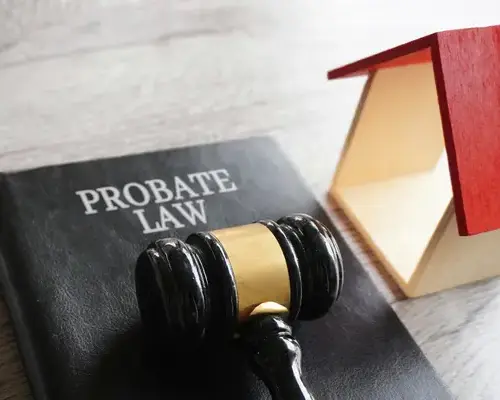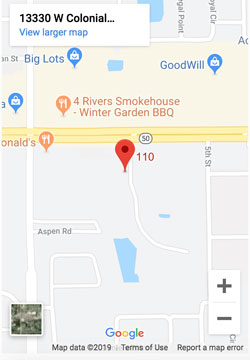How a Landlord Tenant Dispute Lawyer Can Help You
The lease agreement is supposed to bring clarity to the rental relationship, but when a disagreement arises, it often feels like a source of confusion. Whether you’re a landlord dealing with a lease violation or a tenant fighting for your security deposit, it’s hard to know who is legally in the right. Instead of guessing your way through a high-stakes problem, you can get clear answers and a strategic path forward. A landlord tenant dispute lawyer specializes in interpreting these contracts and applying Florida’s specific property laws to your situation. We’ll break down the common issues these lawyers handle, what it costs to hire one, and the key signs that it’s time to stop handling things on your own.
Key Takeaways
- A Strong Lease Is Your First Line of Defense: The best way to handle a dispute is to prevent it from happening. Having an attorney draft or review your lease ensures it’s clear, fair, and compliant with Florida law, protecting both landlords and tenants from future conflicts.
- Recognize Red Flags That Require Legal Action: Don’t wait for a problem to escalate. If you’re facing an eviction, dealing with unsafe living conditions, or fighting for your security deposit, it’s time to consult a professional to protect your rights and financial interests.
- Choose a Specialist with Local Court Experience: Not all lawyers are the same. For the best outcome, find an attorney who specializes in Florida’s landlord-tenant laws and has a proven track record in your local courts, as this specific expertise is crucial for your case.
What Does a Landlord-Tenant Lawyer Actually Do?
Think of a landlord-tenant lawyer as your professional guide through the often-confusing world of rental agreements and property laws. Their main job is to represent either landlords or tenants in disputes, ensuring that everyone’s rights are protected under the law. They handle everything from reviewing a lease before you sign it to representing you in court if a disagreement gets serious.
Whether you’re a property owner trying to follow proper eviction procedures or a tenant dealing with unsafe living conditions, a lawyer can clarify your obligations and options. They bring a deep understanding of Florida’s specific statutes to the table, which can make all the difference when the outcome has a major impact on your finances or living situation.
Common Disputes They Handle
Landlord-tenant lawyers step in when communication breaks down and disagreements arise. They manage a wide range of issues, including eviction proceedings, disputes over security deposits, and claims of lease violations from either side. They also handle cases involving property damage, failure to make necessary repairs, and accusations of illegal activity on the premises. A lawyer can research the law for you and find specific statutes or previous cases that support your position. Their expertise in Florida’s real estate law allows them to build a strong case, whether it’s settled through negotiation or presented in court.
Why Landlords Hire an Attorney
For landlords, hiring an attorney is about protecting your investment and minimizing risk. A lawyer can draft ironclad lease agreements that are clear and legally compliant from the start. When issues arise, such as a tenant failing to pay rent or violating the terms of the lease, an attorney ensures you follow Florida’s strict legal procedures for eviction. Trying to handle these situations on your own can lead to costly mistakes that may result in a judge ruling against you. Having an experienced lawyer on your side helps you manage your property professionally, enforce the lease agreement fairly, and handle any disputes with confidence and legal precision.
Why Tenants Hire an Attorney
Tenants often seek legal help when their rights are being violated and their home is at risk. You should consider hiring a lawyer if your landlord is attempting to evict you without proper cause, discriminating against you, or refusing to make essential repairs that affect your health and safety. An attorney can also be invaluable if your landlord is withholding your security deposit unfairly or violating your right to quiet enjoyment of your home. The experienced attorneys at a firm can advocate on your behalf, communicate with your landlord to resolve the issue, and represent you in court if necessary to protect your rights as a tenant.
How a Landlord-Tenant Lawyer Can Help You
Navigating a dispute with your landlord or tenant can feel overwhelming, but you don’t have to handle it alone. A landlord-tenant lawyer acts as your advocate, using their knowledge of Florida property law to protect your rights and guide you toward a resolution. Whether you’re a landlord trying to manage your property correctly or a tenant facing an unfair situation, an attorney can provide clarity and a strategic path forward. They can step in at any stage—from reviewing a lease before you sign to representing you in court. Their goal is to handle the legal complexities so you can focus on the outcome, ensuring that every action taken is legally sound and serves your best interests.
Reviewing and Drafting Lease Agreements
The lease is the single most important document in any rental situation, and its terms can prevent or cause major headaches down the road. A landlord-tenant lawyer can draft a new lease or review an existing one to make sure it’s fair, clear, and compliant with all of Florida’s landlord-tenant laws. For landlords, this means creating an ironclad agreement that protects your investment. For tenants, it means having an expert eye to spot confusing language, illegal clauses, or unfair terms before you sign. Starting with a solid, legally sound lease is the best way to build a positive landlord-tenant relationship from day one and avoid future conflicts.
Representing You in Eviction Proceedings
Facing an eviction is one of the most stressful experiences a tenant can go through, while for a landlord, it’s often a necessary last resort. In either case, having legal representation is critical. An attorney can ensure the entire process is handled correctly. If you’re a tenant, your lawyer will verify that the eviction is lawful and defend you if your rights have been violated. If you’re a landlord, an attorney will guide you through the strict legal procedures required to evict a tenant, helping you avoid costly mistakes that could get your case thrown out. Navigating the eviction process requires careful attention to detail, and a lawyer ensures it’s done right.
Resolving Security Deposit and Rent Issues
Disputes over security deposits are incredibly common. A landlord might withhold a deposit for what a tenant considers normal wear and tear, or a tenant might leave the property with damages exceeding the deposit amount. A lawyer can help resolve these conflicts by clarifying the legal reasons for withholding a deposit and fighting for its rightful return. They can also step in to handle rent-related issues, such as disagreements over late fees, unapproved rent increases, or disputes about payment. Addressing these financial disagreements promptly with legal advice can prevent them from escalating into larger, more expensive problems.
Handling Maintenance and Repair Disputes
As a tenant, you have the right to a safe and habitable living space. When a landlord neglects essential repairs—like fixing a leaky roof, a broken water heater, or a pest infestation—it can directly impact your quality of life. If your requests for repairs are being ignored, an attorney can formalize your complaint and demand action. They can advise you on the proper legal steps to take, which may include sending a formal notice or, in some cases, withholding rent according to Florida law. An experienced attorney can put legal pressure on the landlord to fulfill their obligations and ensure your home is safe.
Ensuring Fair Housing Law Compliance
Fair housing laws exist to prevent discrimination based on race, religion, gender, family status, and other protected classes. For tenants, a lawyer can help you file a complaint if you believe a landlord has unfairly denied you housing, offered different terms, or tried to evict you for discriminatory reasons. For landlords, an attorney is an invaluable resource for staying compliant and avoiding lawsuits. They can review your tenant screening process, property rules, and advertising to ensure you are following all aspects of Florida’s Fair Housing Act and federal regulations, protecting both your business and your reputation.
Mediating and Resolving Conflicts
Not every dispute has to end up in a courtroom. Litigation is often expensive, stressful, and time-consuming for everyone involved. A skilled landlord-tenant lawyer can act as a negotiator or mediator, working to find a practical solution that both parties can agree on. They can communicate directly with the other party or their attorney to work out a settlement on issues like lease breaks, property damage, or move-out terms. This approach often leads to a faster, more cost-effective resolution than going to trial. By exploring these legal solutions, you can often resolve the conflict and move forward with less stress.
Key Signs You Need to Hire a Lawyer
Knowing when to handle a landlord-tenant issue on your own versus when to call for professional help can be tricky. While clear communication can resolve many minor disagreements, some situations carry significant legal weight and can have lasting consequences if mishandled. If you find yourself in a dispute that feels overwhelming, involves complex legal rules, or puts your housing or finances at risk, it’s probably time to consult an attorney. An expert can clarify your rights and outline the best steps to protect your interests.
Facing an Eviction or Wrongful Eviction
Receiving an eviction notice is incredibly stressful, but it’s important not to panic. In Florida, landlords must follow a strict legal process to evict a tenant; they can’t just change the locks or throw your belongings out. If you believe the eviction is retaliatory because you requested a repair, or if your landlord is trying to force you out without a court order, you should seek legal advice immediately. A landlord-tenant lawyer can review your case, ensure your rights are protected, and represent you in court if necessary. Acting quickly is key to building a strong defense and keeping your home.
Dealing with a Lease Violation
Your lease is a binding contract for both you and your landlord. If your landlord isn’t holding up their end of the bargain, you have options. This could include failing to make promised repairs, entering your apartment without proper notice, or otherwise violating the terms you both agreed to. A lawyer can help you understand the specific language in your lease and Florida law. They can draft a formal notice to your landlord demanding they comply with the lease terms or help you pursue legal action if the breach continues, ensuring the issue is addressed correctly without putting your tenancy at risk.
When Repairs and Habitability Are Ignored
Landlords have a legal duty to provide a safe and habitable living environment. This means addressing serious issues like a broken heater, a leaking roof, or a pest infestation. If you’ve repeatedly notified your landlord about a critical repair and they’ve ignored your requests, you shouldn’t have to live in unsafe conditions. An attorney can help you formally document the problem and notify your landlord of their legal obligation to fix it. In some cases, you may be able to withhold rent or even break your lease, but you need to follow specific legal procedures to do so without facing penalties.
Experiencing Discrimination
Housing discrimination is illegal. Under the federal Fair Housing Act and Florida law, landlords cannot refuse to rent to you, offer different terms, or evict you based on protected characteristics like race, religion, national origin, sex, disability, or familial status. If you feel you’re being treated unfairly for any of these reasons, it can be difficult to prove without help. A lawyer who understands fair housing laws can assess your situation, gather evidence, and file a formal complaint on your behalf with the appropriate government agencies or in court.
Fighting for Your Security Deposit
It’s one of the most common disputes between landlords and tenants. You’ve moved out, left the place clean, and are waiting for your security deposit back—but it never comes, or the landlord has deducted an unreasonable amount. In Florida, landlords must follow specific rules for withholding and returning security deposits, including providing a written explanation for any deductions. If your landlord is unfairly keeping your money, a lawyer can write a strong demand letter on your behalf. If that doesn’t work, they can help you sue in small claims court to recover the funds you’re owed.
Understanding the Costs of a Landlord-Tenant Lawyer
Let’s talk about one of the biggest questions on everyone’s mind when considering legal help: the cost. The price of hiring a landlord-tenant lawyer in Florida isn’t one-size-fits-all; it depends on your specific situation. However, understanding how attorneys structure their fees can give you a clearer picture of what to expect. Most legal costs fall into a few common categories, from simple hourly charges to flat fees for specific tasks. Knowing the difference will help you feel more prepared and in control as you seek the right legal support for your case.
Hourly Rates for Consultations
The most common way lawyers charge for their time is by the hour. For landlord-tenant issues, these rates in Florida generally fall between $150 and $500 per hour. In larger metro areas like Orlando or Tampa, you might see rates on the higher end of that spectrum. This fee covers the attorney’s work on your case, including phone calls, drafting documents, and legal research. When you first meet with an attorney, they should be transparent about their hourly rate. This initial consultation is the perfect time to ask questions and understand exactly what you’re paying for before you commit to anything.
Flat Fees for Simple Cases
For straightforward, predictable tasks, many attorneys offer a flat fee. This is a single, upfront cost for a specific service, which is great for budgeting. For example, handling an uncontested eviction might cost between $300 and $1,000. The key word here is “uncontested.” If the other party decides to fight the eviction, the case becomes more complex and will likely shift to an hourly rate. A contested case that turns into a lawsuit could end up costing anywhere from $2,500 to $10,000, so it’s important to discuss these possibilities with your lawyer from the start.
Costs for Complex Disputes and Litigation
If your dispute can’t be resolved easily and heads toward litigation, the costs will naturally be higher. A full-blown lawsuit involving a landlord-tenant issue can range from $10,000 to $20,000. Should the case proceed all the way to a trial, the expenses can climb even further. While these numbers can seem intimidating, an experienced attorney can often find ways to resolve the conflict before it reaches that point. Their goal is to find the most effective and efficient path forward, which often involves negotiation or mediation to save you time, stress, and money.
What Affects the Final Cost?
So, what determines whether your case will be on the lower or higher end of these cost estimates? The biggest factor is complexity. A simple lease review will cost far less than a dispute over significant property damage or a wrongful eviction claim that goes to court. The amount of negotiation required and the willingness of the other party to cooperate also play a huge role. The best way to get a handle on potential costs is to have a frank conversation with an attorney. A clear fee agreement is essential for a good working relationship and ensures there are no surprises down the road.
How to Choose the Right Landlord-Tenant Lawyer in Florida
Finding the right lawyer can feel like a monumental task, especially when you’re already dealing with a stressful housing situation. But making a thoughtful choice is the first step toward resolving your issue. You need an advocate who not only understands the law but also understands you. Focus on finding a professional who is experienced, communicative, and transparent—someone you can trust to guide you through the process.
Look for a Specialist in Florida Property Law
When you’re searching for a lawyer, you’ll want someone who lives and breathes Florida property law, not a generalist who handles a little bit of everything. Landlord-tenant laws have specific rules and deadlines that can make or break a case. A specialist will be up-to-date on the latest statutes and local ordinances, giving you a significant advantage. They’ve seen cases like yours before and can offer advice based on deep experience. An attorney with a dedicated real estate law practice will have the focused knowledge needed to handle your case effectively.
Find Someone with Local Court Experience
Florida’s legal landscape can vary from county to county. A lawyer who is familiar with the local courts in your area brings a home-field advantage. They understand the specific procedures of the local courthouse and may even know the tendencies of the judges and opposing attorneys. This local insight is invaluable and can streamline your case, saving you time and stress. An attorney who regularly practices in your jurisdiction will be better prepared to manage the unique challenges your case might face, from filing paperwork correctly to arguing effectively in front of a local judge.
Assess Their Communication Style
You and your lawyer will be a team, and good communication is the foundation of any successful partnership. During your initial consultation, pay attention to how they listen and respond to your questions. Do they explain complex legal terms in a way you can understand? Do they seem genuinely interested in your situation? You should feel comfortable being open and honest with them. Ask about their communication policy—how often will you receive updates, and who will be your primary point of contact? Finding someone whose style matches your needs will make the entire legal process feel more manageable.
Demand a Clear Fee Structure
Financial uncertainty only adds to the stress of a legal dispute. Before you hire an attorney, make sure you have a crystal-clear understanding of their fee structure. Don’t be shy about asking for a detailed breakdown of all potential costs. Many lawyers offer a free initial consultation where you can discuss this. Whether they charge an hourly rate, a flat fee for a specific service, or work on contingency, you should receive a written fee agreement. This document protects both of you and ensures there are no surprises down the road. You can contact a firm to schedule a meeting and discuss your options.
Check Reviews and Credentials
Doing a little homework upfront can save you a lot of headaches later. Start by looking for online reviews and testimonials from former clients to get a sense of their reputation. Beyond client feedback, you should verify their credentials. You can confirm that any lawyer you’re considering is in good standing with The Florida Bar and check for any public disciplinary history. A reputable lawyer will have a solid track record and be transparent about their experience and qualifications. This due diligence ensures you’re placing your trust in a capable and professional advocate.
What Can a Lawyer Accomplish for You?
When you’re caught in a dispute with your landlord or tenant, it’s easy to feel overwhelmed and unsure of your next move. Bringing a lawyer into the picture does more than just add legal muscle to your side; it provides a clear path forward. An experienced attorney can manage the complexities of your situation, from negotiating with the other party to representing you in court if needed. Their goal is to handle the legal burdens so you can focus on your life and business. Let’s look at the concrete outcomes a landlord-tenant lawyer can help you achieve.
Achieve a Favorable Resolution or Settlement
Many people think hiring a lawyer automatically means a long, drawn-out court battle, but that’s often not the case. One of the most valuable things an attorney can do is negotiate a favorable settlement on your behalf. They can communicate with the other party’s legal counsel to find common ground and work toward a resolution that protects your interests without ever stepping into a courtroom. A negotiated settlement can save you significant time, money, and stress. An attorney skilled in real estate litigation knows how to craft an agreement that resolves the current issue and prevents future conflicts.
Get Strong Representation in Court
If your dispute can’t be settled through negotiation, having strong representation in court is essential. A lawyer who specializes in landlord-tenant law understands the specific legal procedures, evidence rules, and arguments that are most effective in front of a judge. They will prepare and present your case, handle all the paperwork, and advocate for you during hearings. This is especially critical in Florida, where landlord-tenant laws have specific requirements that must be followed precisely. Having one of our firm’s attorneys by your side ensures your story is heard and your case is presented clearly and professionally, greatly improving your chances of a positive outcome.
Recover Money You’re Owed
Whether you’re a landlord trying to collect unpaid rent or a tenant fighting for the return of a security deposit, a lawyer can be instrumental in helping you recover the money you are rightfully owed. Your attorney can take formal legal steps, such as sending a legally compliant demand letter or filing a claim in small claims or county court. They know exactly what documentation is needed to prove your case and can effectively argue for financial compensation for damages, unpaid rent, or improperly withheld funds. This takes the guesswork and emotion out of the process, focusing instead on a direct strategy to get your money back.
Protect Your Legal Rights and Interests
Landlord-tenant law is filled with rights and responsibilities for both parties. An attorney’s primary job is to protect your legal rights and ensure the other party doesn’t violate them. They will review your lease agreement, analyze your situation based on current Florida statutes, and advise you on the best course of action. Whether it’s ensuring an eviction is conducted legally or defending you against a baseless claim, your lawyer acts as your shield. They make sure your actions are legally sound and build a strong case to defend your interests, drawing on a deep understanding of all relevant practice areas.
Gain Peace of Mind with an Expert on Your Side
Beyond the legal tactics and financial outcomes, one of the biggest benefits of hiring a lawyer is the peace of mind it provides. Dealing with housing disputes is incredibly stressful and can consume your mental energy. Handing the problem over to a capable professional lifts that weight from your shoulders. You no longer have to worry about deadlines, difficult conversations, or complex legal documents. Knowing you have an expert advocating for you allows you to rest easier. If you’re ready to offload that stress, you can contact our team to discuss your situation and find a path to resolution.
Related Articles
- Evictions – Legal Counsel P.A.
- Lease Agreements – Legal Counsel P.A.
- Evictions Lawyer And Landlord Representation – Legal Counsel P.A.
- Unlawful Detainer Actions – Legal Counsel P.A.
- Florida Real Estate Law | Property Rights & Legal Tips
Frequently Asked Questions
Can I handle an eviction on my own to save money? While it might seem like a way to cut costs, handling an eviction yourself in Florida is risky. The law has very specific procedures and deadlines that must be followed perfectly. One small mistake, like improper notice, could get your case thrown out, forcing you to start over and costing you more in lost rent and time. An attorney ensures the process is done correctly from the start, protecting your investment and saving you from potential legal headaches.
What should I bring to my first meeting with a landlord-tenant lawyer? To make your first consultation as productive as possible, gather all relevant documents. This includes your signed lease agreement, any written communication with your landlord or tenant (like emails or text messages), photos or videos of property damage or repair issues, and any official notices you’ve sent or received. Having this information organized will help the attorney quickly understand your situation and give you more specific advice.
My landlord is ignoring my repair requests. Can a lawyer actually force them to fix things? Yes, a lawyer can apply significant legal pressure to get repairs done. They typically start by sending a formal, written demand to your landlord that outlines their legal obligation to maintain a habitable property under Florida law. This official communication often gets a faster response than your own requests. If the landlord still refuses, your attorney can advise you on the next steps, which could include taking legal action to compel them to make the necessary repairs.
Is it worth hiring a lawyer for a security deposit dispute? For many people, it absolutely is. While the amount of a security deposit might seem small compared to court costs, Florida law allows you to potentially recover your attorney’s fees if you win your case. An attorney can assess your situation and determine the strength of your claim. Often, a strong demand letter from a law firm is all it takes to convince a landlord to return a deposit they’ve unfairly withheld, resolving the issue without ever going to court.
How long does it typically take to resolve a landlord-tenant dispute with a lawyer’s help? The timeline really depends on the complexity of your case and how willing the other party is to cooperate. A straightforward issue resolved with a demand letter might be settled in a few weeks. However, a contested eviction or a dispute that requires a lawsuit could take several months. Your attorney can give you a more realistic estimate based on the specifics of your situation after your initial consultation.

















